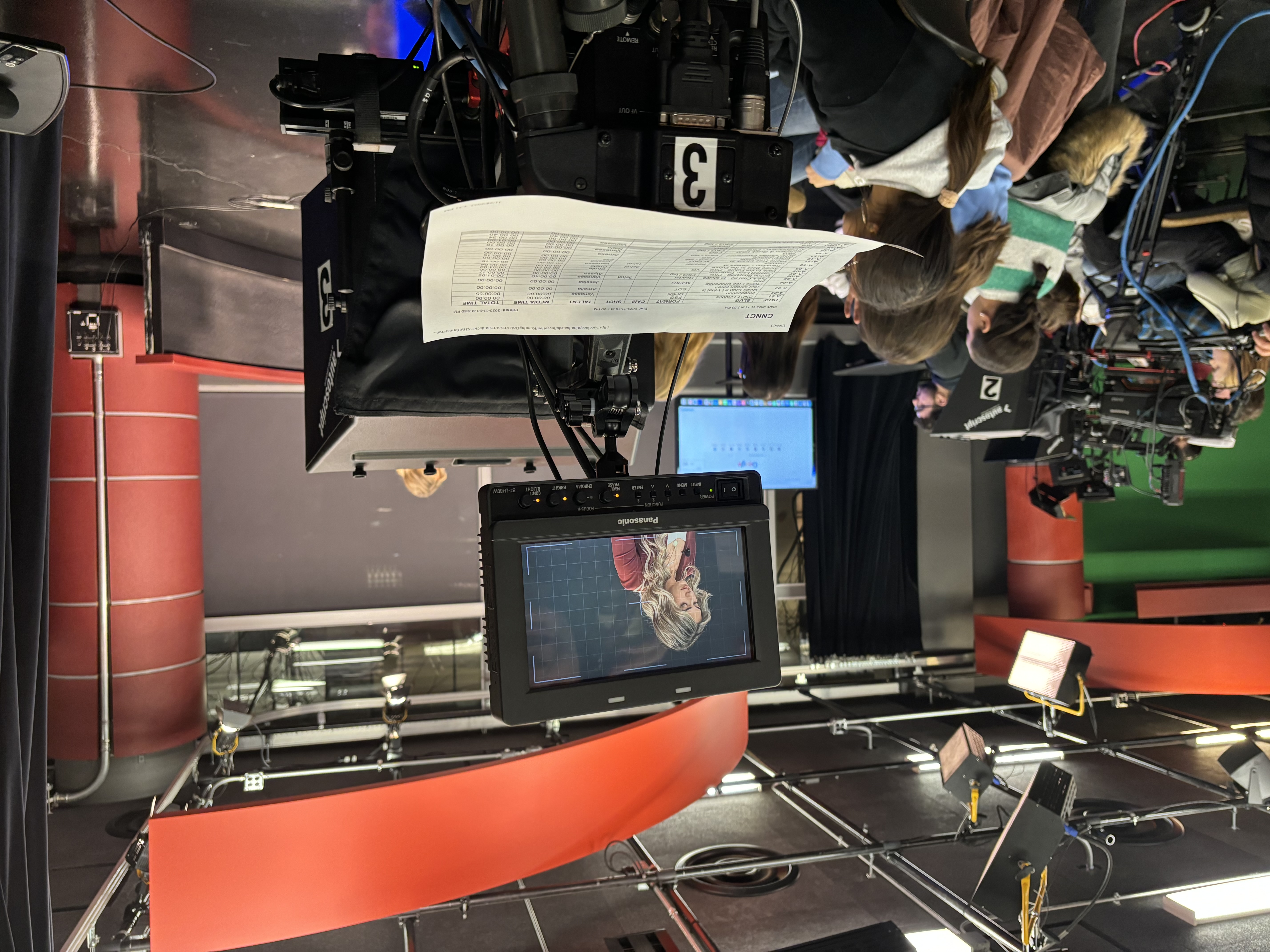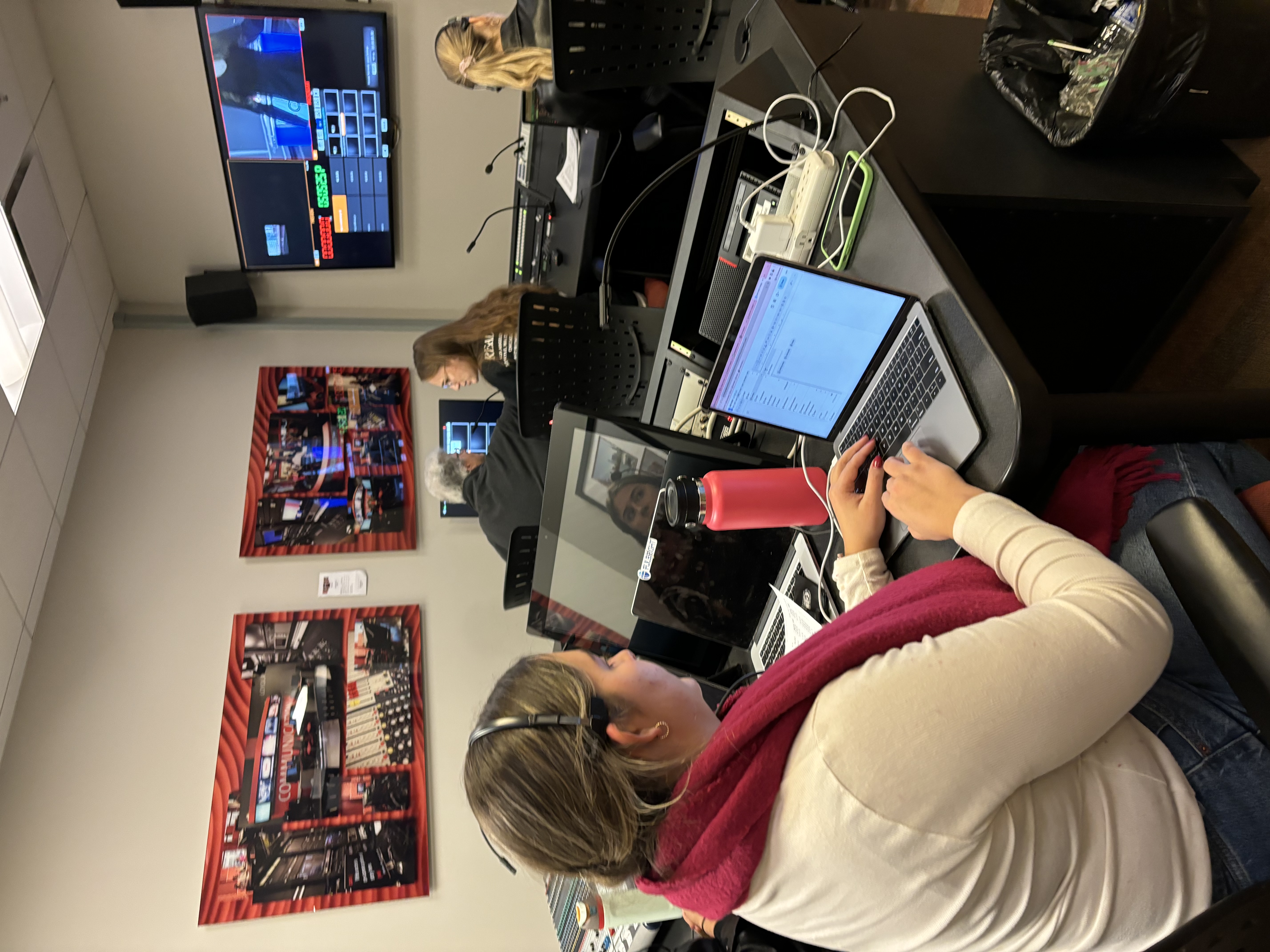From Classroom to Newsroom: Loyola Chicago's TV Talk Show Class Redefines Media Education

Nestled within the vibrant halls of Loyola University Chicago's School of Communication, a groundbreaking course revolutionized how students experience the world of television. This fall, the TV Talk Show Production Class, under the guidance of seasoned journalist Phil Ponce and Professor Richelle Rogers, turned classrooms into newsrooms, providing students a front-row seat to the dynamic and demanding world of TV production.

Phil Ponce, with his rich background in journalism, brought a wealth of knowledge and insights to the course. "We are the fourth estate," he emphasized, underscoring the responsibility of journalists in shaping democracy. His reflections on accuracy, impartiality, and the importance of credibility in journalism resonated deeply with the students, guiding their approach to talk show production.

American jounralist Phil Ponce on the set of Chicago Tonight, a television news program broadcast on weeknights on WTTW in Chicago.
The class was more than an academic exercise; it was an immersion into the heartbeat of TV talk shows. Here, students didn't just learn about television production; they lived it, understanding the intricacies and excitement of bringing a show to life.
Alyssa Suarez, one of the students, captured the essence of this journey. "Visiting the WTTW studios on September 5th was an incredible opportunity I have dreamt of since I was 10. Upon entering the WTTW studios, I was impressed by how supportive and friendly the staff were. Everyone is a team."
Chloe Morrissey's childhood dreams came to life in the course. "We had the privilege of watching Brandis Friedman anchor the nightly newscast, Chicago Tonight. Watching a veteran journalist at work live in the newsroom was eye-opening, as we were able to see first-hand how well she was able to command the room with her compelling delivery. We also had the privilege of watching how the control room operates during a live show," she shared.

For Caroline Ejzak, the course was a revelation. "Before visiting the WTTW studios, I had little understanding of what it takes to produce an episode of a live TV show. Seeing the inner workings of a professional-level production team could not have been more impressive," she noted.

Ponce also stressed the evolving nature of journalism. "No matter what the platform, the principles of preparation, listening, and reacting remain central," he advised, preparing students for a media landscape that is constantly changing yet grounded in enduring values.
As these budding journalists and producers stepped beyond the classroom, their journey took them beyond mere learning to a transformative experience, one that echoes the spirit of adventure at Loyola's School of Communication. Each day in the class wasn't just about grasping the mechanics of TV production; it was about embracing a world where creativity meets professionalism, where every challenge is a stepping stone to mastery.
Alyssa Suarez, reflecting on this experience, shared, “This course has taught me how to operate and report with different forms of communication to produce a 30-minute talk show at the end of the semester. Students are split into their favored roles such as reporter, producer, host, executive producer, social media moderator, and more. We learn the importance of all the different jobs that work together to produce an on-air segment, much like the TV talk shows that we see on TV.” This sentiment of working together captures the essence of the course - a microcosm of the larger media world, but with the nurturing guidance of experts like Phil Ponce, who remarked, “I think the School of Communication is playing a vital role in preparing students for a changing world. That sounds like a platitude, but man, I mean it.”
